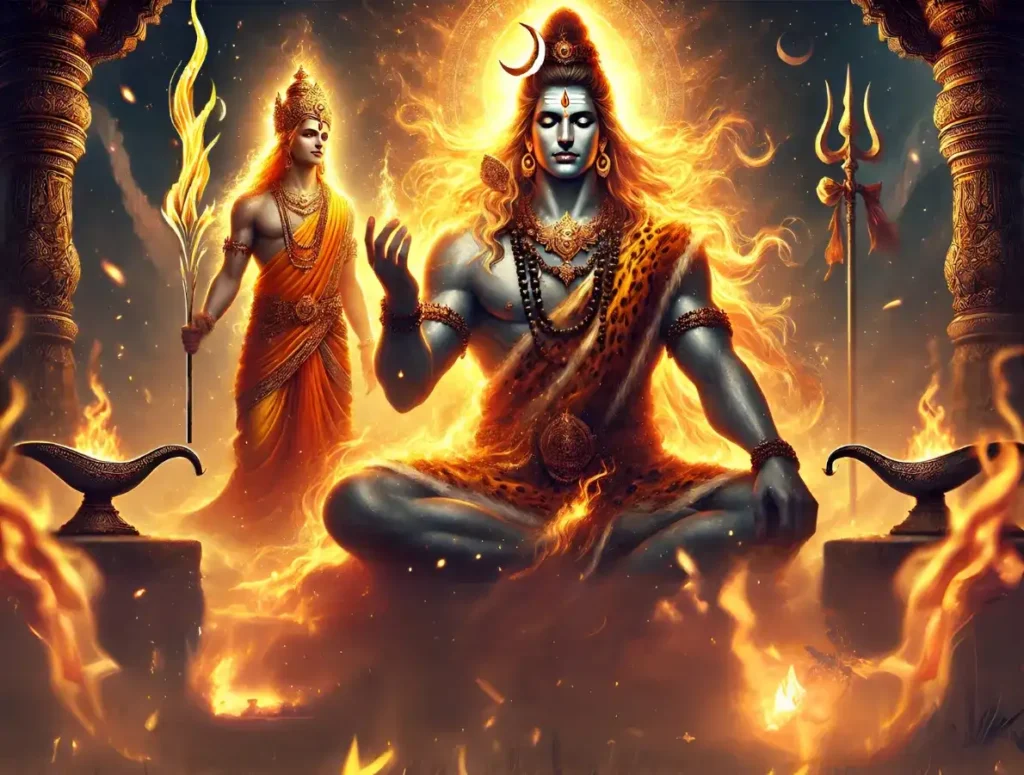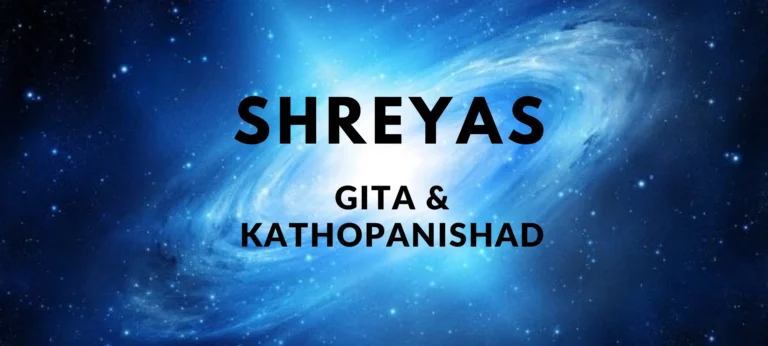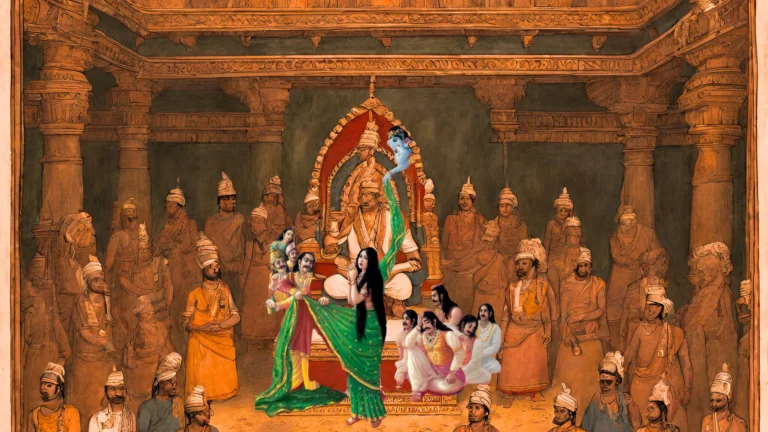Please Like the Blog and Share it for Maximum Reach
Table of Contents
How does Rigveda represent the gods?
The concept of God in the Rigveda, is not of a placid figure who sends commandments and orders a dictatorial regime on the planet. The Rigveda talks of Gods who represent the many shades of human thought and emotions.

They are the personification of the inner faculties within consciousness. The thought of God arouses feelings within us in congruence with our innermost alignments. On the other hand, people who do not understand God or do not bother about the concept of God think of idols and images as superstitions, fetishes, and emblems of crude sacrifices. They are unaware of the Truth behind Gods.
Society misrepresents the gods
They are unable to see original life within gods, as the magical faces of the One Cosmic being. This is their irony. It should be well understood that there is nothing rigidly defined about the ancient gods within Sanatana Dharma.They are not placid images where each god is distinct with nothing to do with the “other” god. The term that should be associated with gods, that represent the inner dimensions of human consciousness and the aggregate whole of the same known as the one “God”, is the term “Divine”.
Comparing Gods with Bhagawan or Parabrahman
Each Devata represents God. They represent the ultimate one in some sense, the aspect of the “Divine” in one form or the other. The names that represent the 33 grades of the gods within the Dharma are but the different dimensions of the One Divine. In that sense, each Devata is that One God (Parabrahman) and vice-versa. ‘Devata is Prabrahman’ is a partial fact though.
Let’s understand the differences and similarities in detail now.
Similarities between Gods and Bhagawan
Let’s take Surya Devata as an example. Lord Surya represents valor, brilliance, and wisdom. In other words, an embodiment of these extraordinary qualities is Surya Devata.
Now, the Supreme Lord, (call it Narayana, Parabrahma, or Krishna), comprise within them, not just the Qualties of Surya Bhagawan, but way more beyond that. They will contain qualities of Beauty, Power, Fame, Brilliance, Virtues, etc.
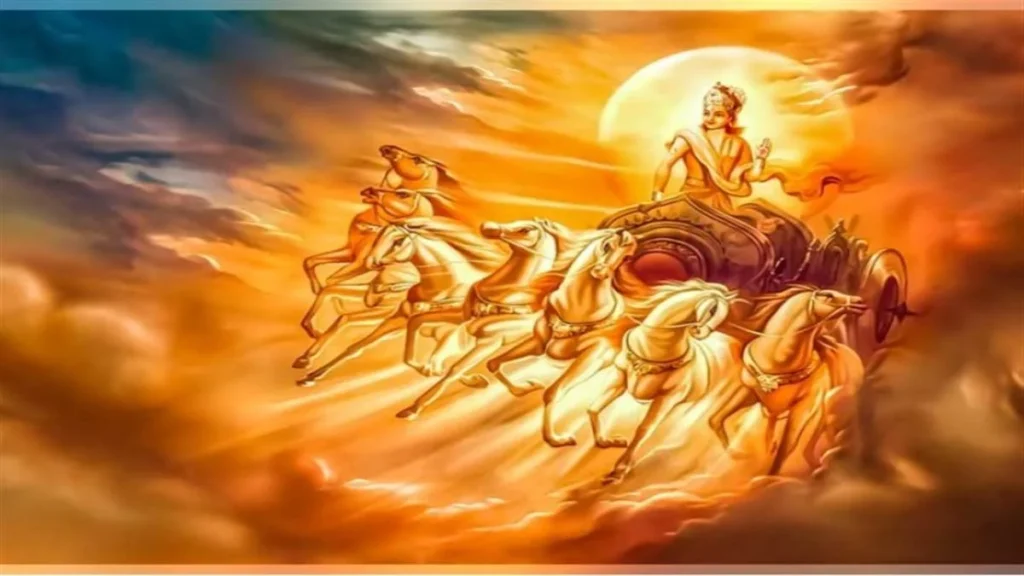
However, Surya Devata becomes a part and parcel of the Lord as he represents a certain set of qualities that are ingrained in the Lord. In this way, the Devata becomes similar to the Supreme Lord, but cannot become Parabrahman.
So, Surya Devata is just a personification of a particular attribute of the Lord, whereas the Lord is an ocean of unheard exceptional qualities. Summing up this example by saying that the 33 Gods are parts and parcels of the Lord and are representatives of the Lord.
However, they cannot match the Lord completely. So, disrespecting the Gods or Devatas is an offense as they are representative of Bhagawan.
Differences between Gods and Bhagawan
From the above discussion, we concluded that Devatas are also Para Brahman, yet different from them. What makes them different if they possess the virtues of God?
Well, it is their incompleteness and the possession of vices that make them starkly different from God. In the previous segment of this article, we saw that they are but, very similar to God.
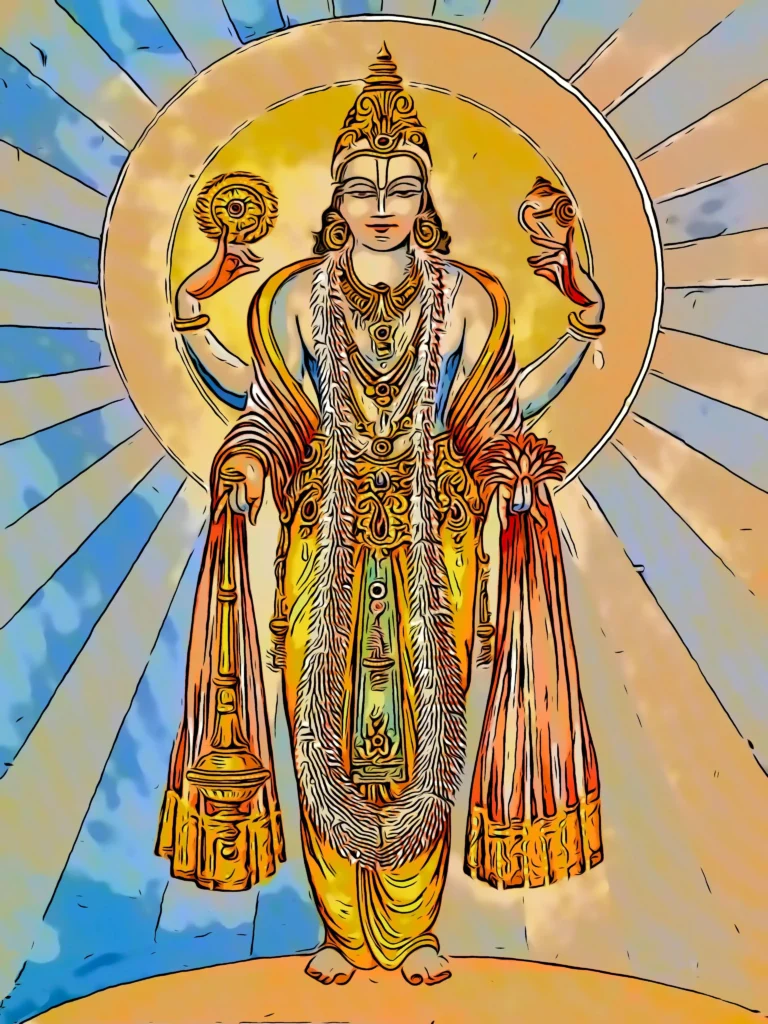
But, now we shall see the 2 major attributes that set them extremely separate from Parabrahman.
Incompleteness: They have limited virtues when compared to Bhagawan. This was discussed in the sense of completeness in the previous section. Here, we saw the same point in the ‘half glass empty’ analogy. Devatas possess only a speck of the Divine qualities. This makes them incomplete.
Possessing Vices: Indra has been inflicted with pride, lust, and envy in several instances. Chandra has been inflicted by lust, pride, and partiality in certain other instances. Similarly, Sri Brahma (an extremely exalted Bhakta whose vices are only meant to teach a lesson to the world) was inflicted by Maya or ignorance when he saw Sri Krishna’s childhood pastimes with the Gopas of Vrindavan.
All these go to say that Gods or Devatas are prone to make errors and the veil of illusion can blindfold them at any time. Although they are possessors of virtues, they are susceptible to the black shadows of vices as well.
These 2 shortcomings indicate that they are Brahman itself and yet they cannot equate the supremacy of Brahman.
Unity and Diversity of Gods
People might ask why are there so many gods. Well, the answer is quite simple. Each devata inspires a man to consciously appreciate every quality ingrained in the Supreme Lord. The variety of gods exist for man to understand the diversity, present in Bhagawan. When we take notice of each devata, we are appreciating and taking notice of each quality of God. Also, in the material sense, we are seeking specific benefits from the Devatas. In short, Devatas in the material world, cater to specific aspects of human life.
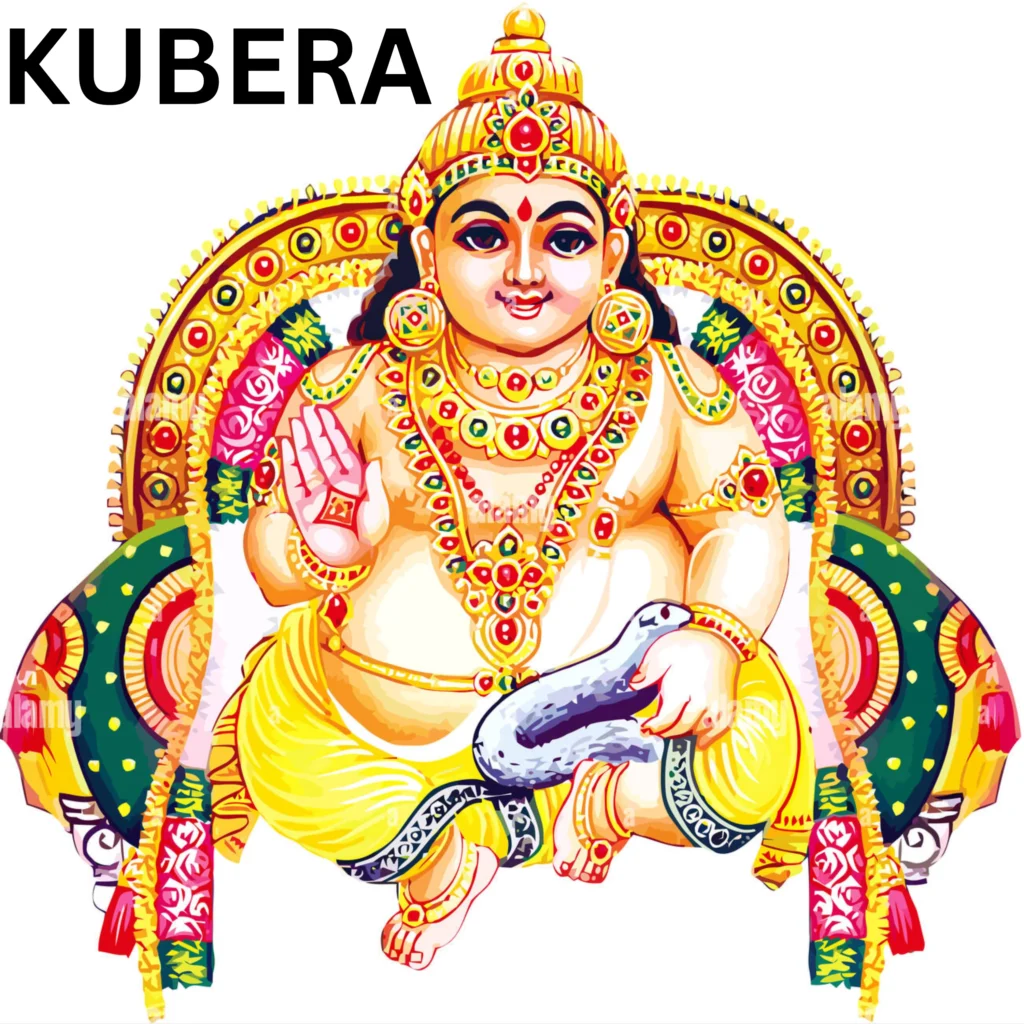
For example: Kubera Devata shall help build monetary status, Shakti shall help you awaken, and Surya shall help build insight and wisdom. All these gods represent the various potencies of Gods, but they also represent the various facets of human life. In the spiritual sense, they represent the powers of God, visible to spiritually evolved beings, like Bhaktas and Jnanis. But, for the common man, Devatas are benefactors of desires.They are designated to control human life through their power.
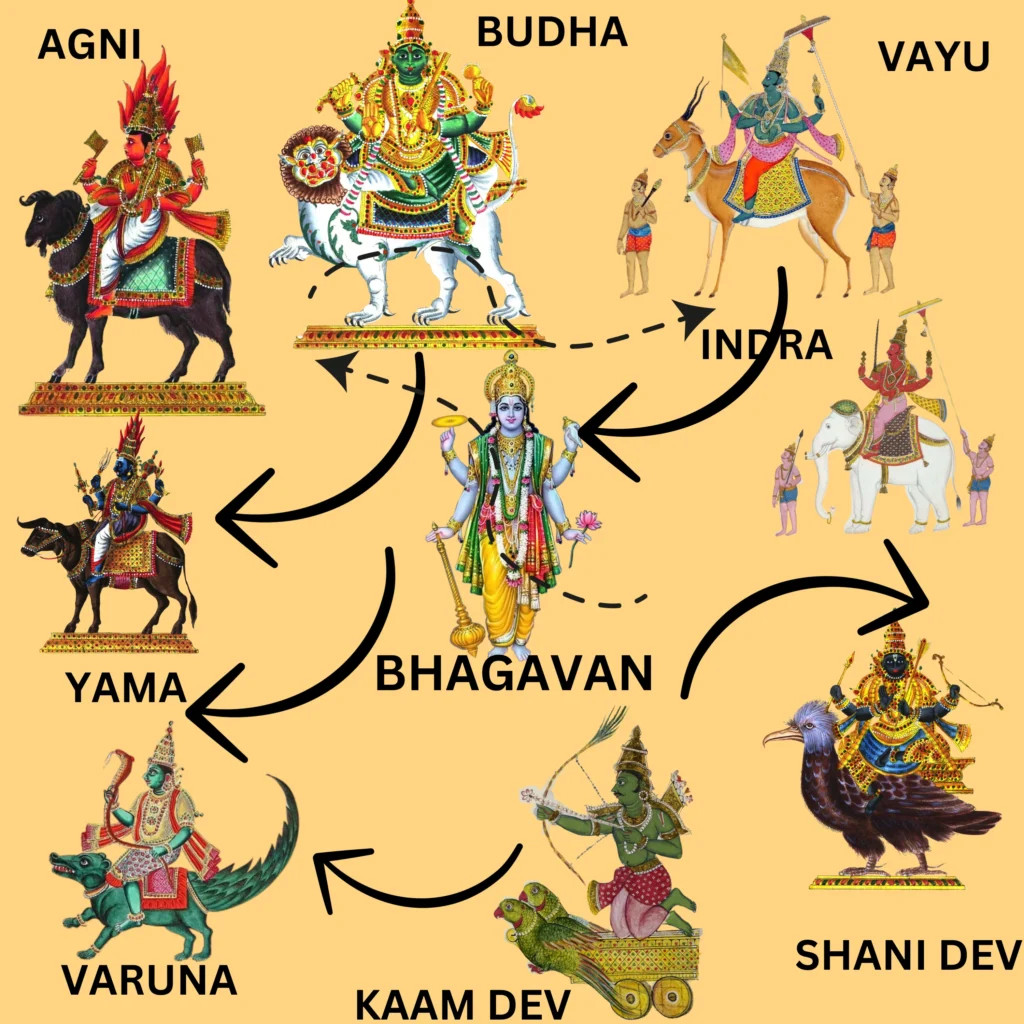
By invoking them, an ordinary man can gain some profit. The gods flow in and out of each other and from the One Divine in its various powers and as the many principles of Truth. Behind each usage of the term God is the sense of unity and universality of that One Divine, its infinite power of manifestation, each of which reflects the being of the totality. The unity of God contains within itself unity, duality, and multiplicity all at the same time, supplementing each other.
God is a unity who contains within Himself, without the slightest contradiction, an unlimited creative diversity. This unity does not exclude anything whatsoever.
Explanation of Vedic Gods in Rigveda
Before we proceed we must understand that the Contents of the Rigveda cover a huge variety of topics aimed at uplifting human consciousness. So, the subject matter of Devatas is just one such topic of this revered scripture. Yet, it becomes important for us to contemplate and grasp the intent of the scripture to be able to reap the benefits of its teachings. In the ancient thought about gods, especially in the RigVeda, monism, monotheism, and polytheism all exist together in mutual harmony.
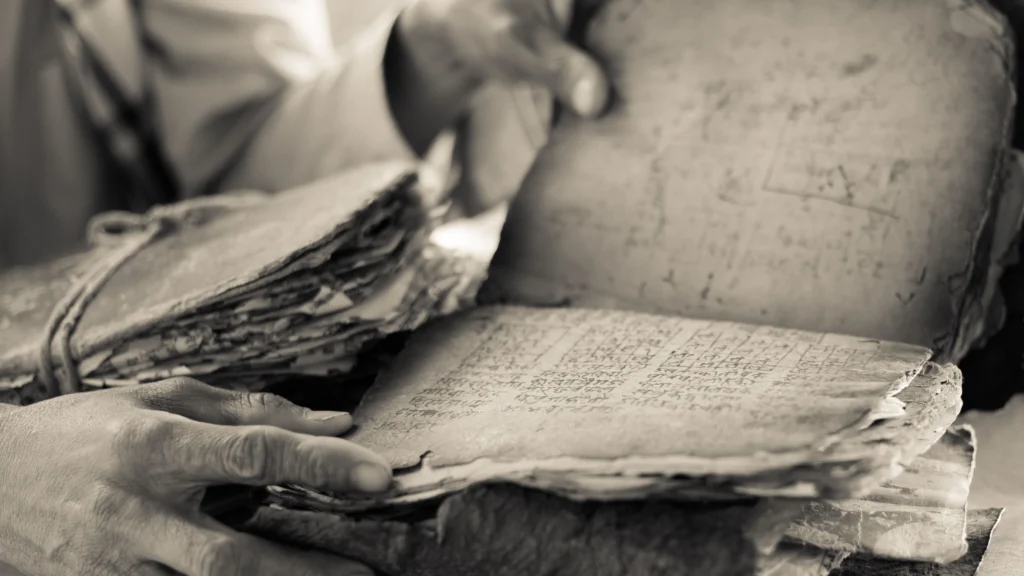
They do not include the artificial contortions that the mind creates. It does not include the mind with its humongous limitations, but the fact of life and existence, which is a unity, which the mind can never measure or comprehend, define, or exhaust. This comprehensive nature of the gods we find in the Rigveda. The diversity of the ancient gods is not according to a real multiplicity or polytheism. Instead, it is according to a universal creative vision that sees one in all and all in one. This vision of God consummately comprehends unity in multiplicity and multiplicity in unity.
Also, it indicates the harmony and integration of all views and ideas in the multidimensional being of consciousness. This realization, cannot be a product of the mind. It is a synthetic intuitive perception beyond all dichotomies of the limited intellect, and of course, not of a primitive imaginative process running beneath it. The gods are an organic comprehension, of an exceptional perceptive ability to be able to “see” without the distortions of the mind and intellect.
Test your Alignment with the Spiritual Subject Matter (only 7-8 Questions)
The scores generated in this Quiz are relative. There are no right or wrong answers. A percentage towards 100 indicates that you are more aligned to the overall subject matter.
Conclusion of the Study of Devatas and Brahman
Devatas are the beings behind the true glory of life that is in front of us and also a life that lies way beyond the limited abilities of perception, of our mundane senses. Devatas are Brahman in Form. The gods are the source of the impressions that leave their marks on our minds.
Note that Devatas are extremely limited in their ability to perceive and yet they carry with them the powers and principles of the Divine nature. They help us function within the domain of the limited senses.
The gods are the lightning that requires no system but moves with spontaneity, all-illuminating, and ever-unfolding, as life progresses. They are sources of material energy in full glory. The Rigveda is a book of the times, when the cultures of the ancient world lived in a Golden age, an era of profound inner awareness and simple outer living in which men lived literally in the presence of gods.
The regressive approach of the West
It is time for the peoples of the world to look back into this era, for superior guidance, because this was the era of complete realization, realization of the purpose of life, of man and material. The Sanatana Dharma talks of the different ages where there is a sequenced decline of consciousness from Golden to Silver to Bronze to Iron ages known in Sanskrit as Satya, Treta, Dvapara, and Kali. It is quite surprising that Western culture sequences the age of development in the reverse order.
Reversal of Human Consciousness
Yet it would be also clear that in Bharath, the parameter of measurement was consciousness while the West looked at the parameters of matter and material development. Although material development is appreciated, it can never be a precedent for the development of consciousness. The violation of this spiritual law is the foundation of the current Iron Age. It will be safe to infer that, as material affluence and technological development progressed, there was a steady decline in human consciousness.
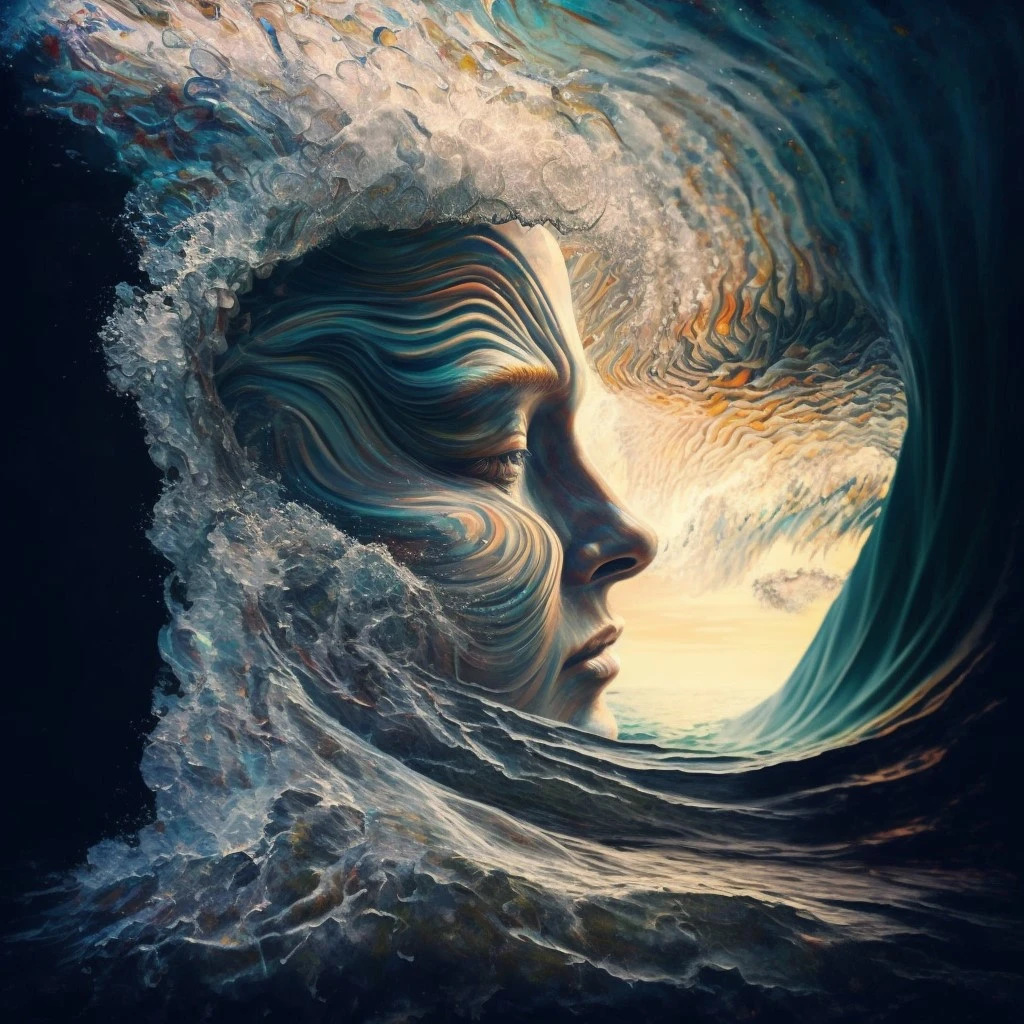
The Vedic culture has retained the continuity of culture through all four ages and has since preserved the pure teachings through all respective ages. The solution to even our current-day problems lies mentioned in the scriptures that have been passed down to us from yore. The Rigveda is one such document that holds the beacon for the current age, only if we care to rely on its teachings, can we consciously light up our paths with the principles declared therein.
It is the vision of the Rigveda of spiritual humanity, not unnecessarily toiling outward for transient, fleeting wealth, fame, position, and possession but living a simple life, focusing greater energy on the worship of the Divine. The Rigveda has a vision for humanity, a cosmic one, an invitation to the Divine to permeate through and through in every action, activity, or resolve that man takes up. It is an invitation to the mighty Sun, being lauded with mystic chants, as the very visible image of the Godhead of perfect enlightenment.
Rigveda Promotes Freedom
The Rigveda is all life, regarded as pure worship, arising spontaneously from the heart, with no iota of darkness, towards the Supreme Being within the heart, who is also all-pervasive, all-permeating. It is the very epitome of Truth or Satya, sung by the torch-bearers of Truth, the sages of Sanatana Dharma, who ordain all things according to their inherent nature, who rule and preside not by force or rigid pattern, nor by autocracy, but by the pure principle of creativity that defines freedom for one and all.
Following the Rigveda will herald an era, where human beings shall live and proffer by the will of God, the Supreme Being, where human beings shall coexist in perfect harmony with Nature and matter. This certainly does not mean that everyone shall be perfectly enlightened; this can never be.
All that the Rigveda promises, is that both the inner states and the outer states of the people shall correspond, the rulers shall be noble, the priests and the bearers of spiritual knowledge shall be spiritual and the masses shall be docile to the rulers, who shall be perfect men of knowledge. All discrepancies shall get harmonized and stand resolved by the will of the Supreme Being. This is the promise of the Rigveda.
Rigveda Promotes Spiritual Unity, True Oneness
Readers, of this blog may feel, or think that such an age would have never really existed; it may not be possible at all, that such a time shall ever emerge in the future. Yet this is merely a measure of our distance (individual distance) from it, our lack of understanding of our past as well as future and hence our present. The attempt is simply to awaken aspirations, the aspiration to live in spiritual humanity, to establish a society once more, founded on deep and higher knowledge.
This is not to laud or falsely appreciate the priestly class or mercantile classes that once took their position to usurp society. It is also not about greedy politicians taking undue advantage of the needy, but this is an attempt, through the RigVeda, to revere the true seers and sages who are the backbone of the Vedic Culture, who in all their benignness, have laid the guidelines for spiritual practice and inner reformation.
Please Like the Blog and Share it for Maximum Reach


